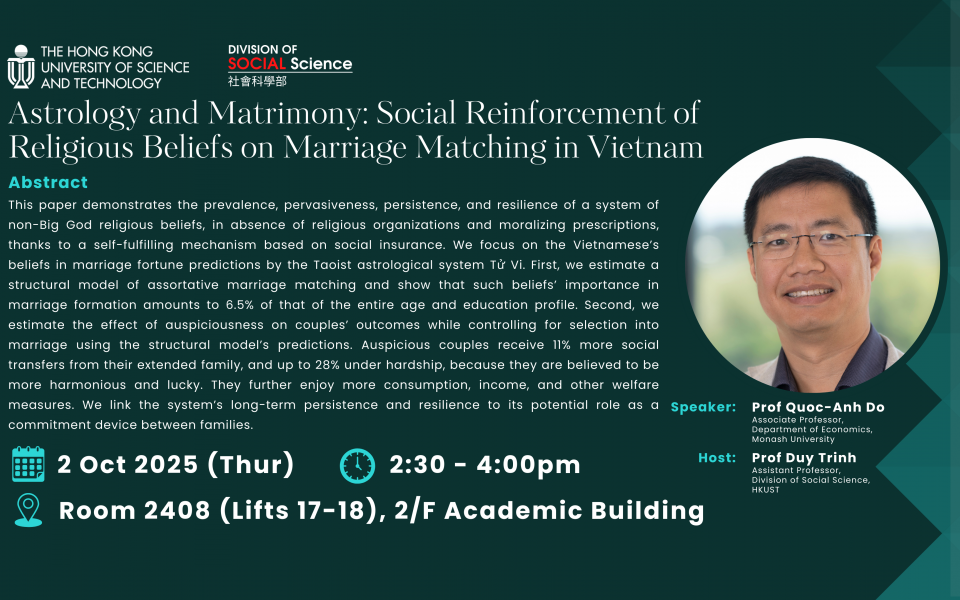Social Science Seminar - Astrology and Matrimony: Social Reinforcement of Religious Beliefs on Marriage Matching in Vietnam
Supporting the below United Nations Sustainable Development Goals:支持以下聯合國可持續發展目標:支持以下联合国可持续发展目标:
(Joint with Edoardo Ciscato and Kieu-Trang Nguyen)
This paper demonstrates the prevalence, pervasiveness, persistence, and resilience of a system of non-Big God religious beliefs, in absence of religious organizations and moralizing prescriptions, thanks to a self-fulfilling mechanism based on social insurance. We focus on the Vietnamese’s beliefs in marriage fortune predictions by the Taoist astrological system Tử Vi. First, we estimate a structural model of assortative marriage matching and show that such beliefs’ importance in marriage formation amounts to 6.5% of that of the entire age and education profile. Second, we estimate the effect of auspiciousness on couples’ outcomes while controlling for selection into marriage using the structural model’s predictions. Auspicious couples receive 11% more social transfers from their extended family, and up to 28% under hardship, because they are believed to be more harmonious and lucky. They further enjoy more consumption, income, and other welfare measures. We link the system’s long-term persistence and resilience to its potential role as a commitment device between families.
Quoc-Anh Do is Associate Professor of Economics at Monash University. His research interests span over several applied microeconomic topics, with special focus on political economy, and also economics of culture, economics of social networks, development economics, economic history, and organizational economics. His research has been published on the Quarterly Journal of Economics, the American Economic Review, the American Economic Journal: Applied Economics, the Journal of European Economic Association, the Journal of Financial Economics, among others. Before joining Monash in 2023, he has worked at Northwestern University, Sciences Po Paris, and Singapore Management University. He obtained his PhD in 2008 from Harvard University’s Department of Economics.
Host: Prof Duy Trinh, Assistant Professor, Division of Social Science, HKUST
